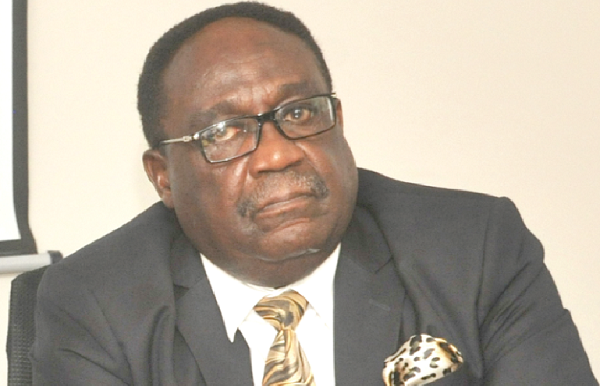The Ghana Association of Bankers (GAB) has commended the Bank of Ghana (BoG) for instigating and presiding over a seamless process that led to the successful takeover of portions of the erstwhile capital deficient and illiquid banks, UT Bank and Capital Bank.
It is hopeful that the swift and professional nature of the process would help bolster public confidence in the operations of banks and the financial sector in general.
The renewed confidence in the sector should emanate from the BoG’s timely intervention which helped to safeguard depositors’ funds by preventing the collapse of the banks, the Chief Executive Officer (CEO) of the GAB, Mr D.K. Mensah, told the GRAPHIC BUSINESS on Tuesday.
He was speaking to the paper a day after the BoG revoked the licences of UT Bank and Capital Bank, following their heavy deficiency in capital and liquidity.
Following the revocation, the central bank approved a purchase and assumption P&A agreement with GCB Bank to assume ownership of the deposits and select assets of the now defunct banks.
The action was in conformity with the demands of the Banks and Specialised Deposits taking Institutions Act, 2016 (Act 930), which was passed last year to help define a mechanism that the central bank can fall on to protect deposits whenever banks go through distress circumstances.
Speaking on the development in an exclusive interview with the paper, the CEO of the Bankers Association said although a difficult situation for management and owners of the failed banks, BoG’s action showed that the central bank was in a position to protect the deposits of the banking public.
“This incident should rather strengthen the faith of the banking public in the banking system. In other words, their deposits are protected,” he said.
“With this kind of thing (the revocation of the licenses and subsequent approval of the P&A), the deposits are safe. Instead of allowing the banks to fail, an arrangement is made and there is no run down,” he added.
Generally, he said the development was an opportune icing on financial sector stability, which had waned on the back of rising non-performing loans (NPLs) and the collapse of some non-bank financial institutions in the recent past.
Impact on GCB Bank
GCB’s takeover of the two banks increased its branch network from 161 to 214 branches. Its list of depositors is also expected to increase, giving the largely state-owned bank a stronger ability to attract deposits at low cost.
The deal also gives GCB Bank access to the unique strengths of the two failed banks, including UB Bank’s robust information technology (IT) platforms and their blend of retail, corporate and small and medium scale enterprises (SMEs) customers.
Irrespective of the size of those assets, Mr Mensah said they could help strengthen the balance sheet and operations of GCB Bank, thereby putting it in a better position to fund more businesses.
Lesson to customers
Although the P&A is still in its early stages, banking consultant and former deputy Governor of the BoG, Mr Emmanuel Asiedu-Mante, said the entire process should serve as a learning curve to banks, their board of directors and management staff.
“The lessons to be learnt are for all stakeholders and all those who manage banks. It means they need to give good policy directions to banks,” he said in a separate interview.
“If you are a director, you have to give good policies to guide the bank’s operations,” he added.
Given that the challenges that led to the insolvency of the two banks emanated from huge asset impairments, the former deputy governor said management needed to understand proper credit risk assessment before loans are granted.
“For the shareholders, they need to learn that managing a bank is a profession and so, in appointing directors, you do not look for your brother or sister; you look for people with the necessary competences to manage your bank for you.”
While commenting the BoG for the bold action, Mr Asiedu-Mante, who retired from BoG in 2006, said the central bank needed to continue monitoring the operations of banks to ensure that depositors’ funds are always protected.
Should the BoG have reasons to believe that some of the directors or other stakeholders acted incompetently, he said they should be investigated and the necessary actions taken against them.
Source: Graphic Business



